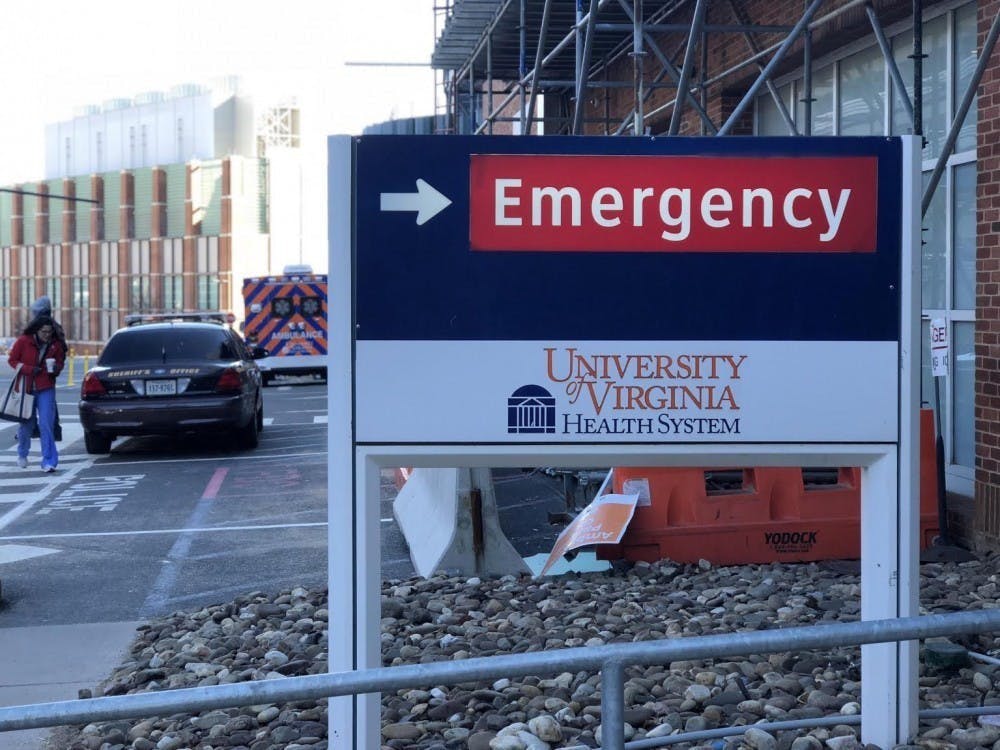The Washington Post released an expose Sept. 9 recounting the predatory practices employed by the Medical Center to collect debts. To recap the story, the Medical Center averages over 6,000 lawsuits per year for medical debt collection and often goes after patients with as little as $3,000 in savings, using draconian tactics to coerce some of the most vulnerable members of the community.
The long-form piece featured heartbreaking vignettes detailing a handful of the thousands of lives ruined by these practices, intercut with staggering statistics that further underscore the scale and depth of the problem. Shortly after the piece was released, President Jim Ryan tweeted a statement about the policies in question. In that tweet, he announced that the practices were brought to his attention a month ago, and a review of the process has been in the works since. While an official review of the policy is necessary, it is by no means sufficient. In order to truly rectify this shameful behavior, there must be substantial change at the Medical Center that amends bad policies and holds accountable leaders who have overseen those policies for the last half decade.
First and foremost, people have to lose their jobs. Ryan has already announced the departure of the Health System CEO — for reasons apparently unconnected to the recent scandal — but there are surely others who understood the grievous harm inflicted by the Medical Center and did nothing. To preside over this policy is indefensible and represents a fundamental moral failure. This policy of predation was morally wrong before the Medical Center was exposed, and it shouldn’t take a 3,000-word write-up in The Washington Post for University Hospital executives to recognize that. Though it’s true that the Health System is legally required to collect these debts, it’s clear that the collection practices are needlessly aggressive.
To make matters worse, many of those responsible for overseeing the legal harassment and financial ruin of uninsured fast-food line cooks, students and many hospital employees themselves take in high salaries, not inclusive of bonuses and cushy health insurance plans. It’s nonsensical and reprehensible for an institution that brought in more than $500 million in profit over 6 years to sue low-income folks for just over $100 million over that same period. Anyone implicated in this behavior is unfit to continue leading a non-profit that is ostensibly dedicated to providing care for people in need. This is not to say these people are evil or irredeemable, but it’s clear that they have no business administering the changes needed for the Medical Center to truly right this wrong.
Beyond restructuring leadership, the Medical Center must dedicate financial resources to help those whose livelihoods it upturned for the mere offense of being poor. Anybody can get into an accident or be diagnosed with a disease, but the Medical Center persistently goes after those with the least capacity to pay for the exorbitant cost of treatment. This regressive targeting exacerbates the already destabilizing nature of a diagnosis or accident, compounding the harm done to vulnerable people. The Medical Center must commit funds to make amends for this systematic harassment. As a state-supported institution that brings in hundreds of millions in profit and manages financial investments worth $1 billion, there is simply no excuse for not committing money to fix the mess it has made. Those millions in profits came out of the pockets of poor and working-class Virginians, and it’s only right that the Health System return some of that money to them.
Aside from the predatory litigation, the entirety of the blame cannot be placed on the Medical Center and its leadership. Many of the bad practices outlined in the Post article are symptoms of the broken American healthcare system. However, there are a handful of practices that can and must be changed to prevent further hurt being inflicted on patients and their families. One of the underlying drivers of predatory litigation is the inability of many people to pay for care to begin with. The Medical Center must therefore revise its aid policies, which currently rank as the most limited of any major care provider in the Commonwealth. Bringing aid requirements more in line with those of comparable institutions would automatically shrink the number of potential lawsuits to begin with. The Medical Center must also put a stop to the practice of applying inordinate markups to the cost of care for the uninsured relative to those with coverage. The average markup on bills for the uninsured is 70 percent, an astounding statistic that suggests a tenuous connection between the sticker price of care and the actual cost of providing that care. These reforms, among others, would be the necessary first steps towards preventing similar practices from emerging in the future.
The Medical Center has been exposed as an institution in dire need of reform. There are a number of policies, beyond the aggressive litigation campaign, that need serious reconsideration in light of recent revelations. Meanwhile, those that continue to oversee these practices have exhibited a lack of judgement that disqualifies them as credible leaders. If these leaders had any true sense of remorse, they would resign and take the opportunity to reflect on the serious damage they have wreaked on people’s lives. Absent this conscientiousness, they should be held accountable by having their responsibilities reassigned to a new cohort, one that is qualified to usher in an institutional restructuring and true atonement.
Brendan Novak is a second-year Master of Public Policy student in the Batten School, and served as an Opinion Editor during the 128th and 129th terms of The Cavalier Daily.







